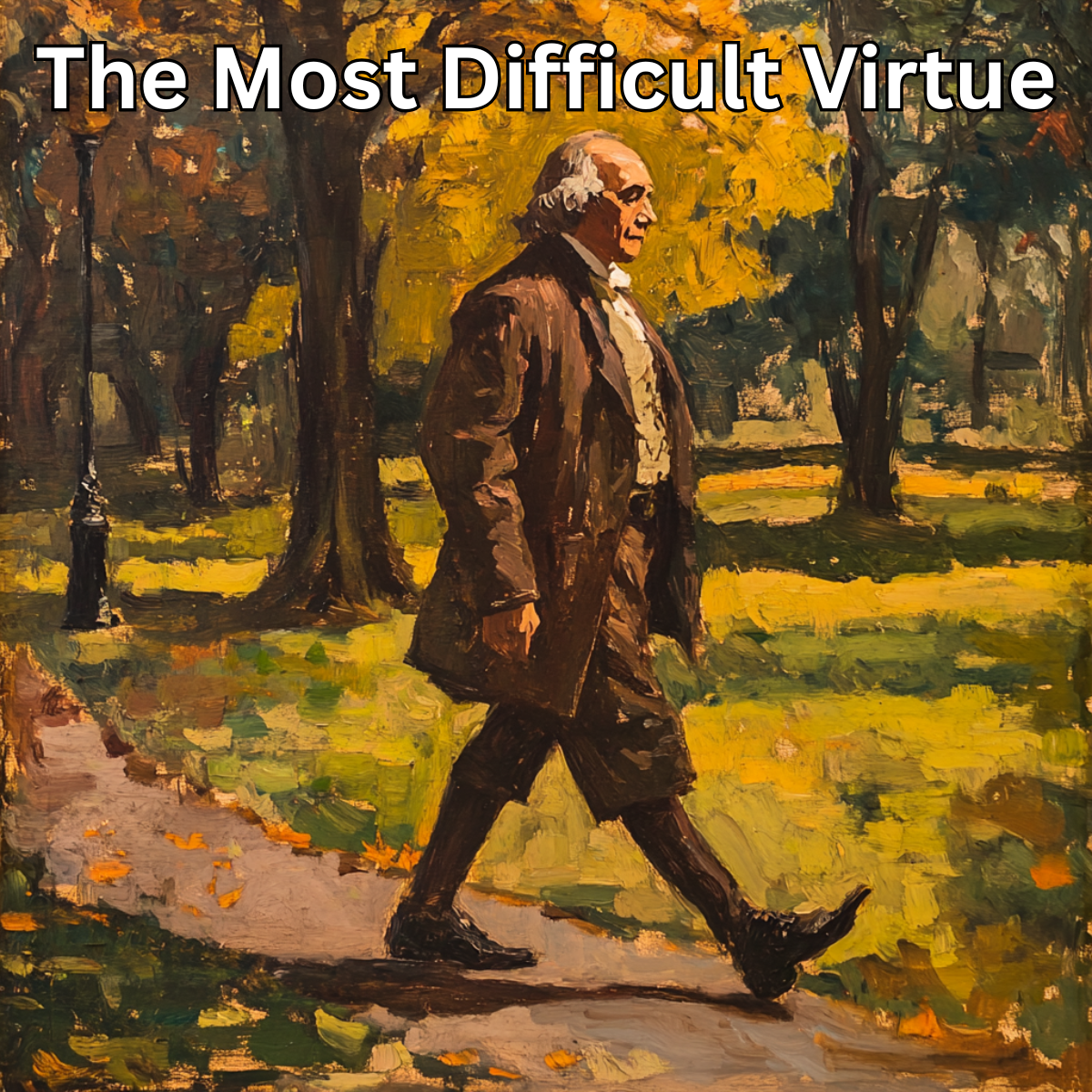When I was in high school, I read Benjamin Franklin’s autobiography. This work is deeply introspective and offers profound insight into the heart and mind of one of the founding fathers of the United States. Here was a man, anxiously searching for ways to improve himself. He devised a method for implementing several virtues into his life. At the end of each day, he would grade himself to determine how well he upheld each one.
One day, a friend discovered his plan and recommended that he add one more virtue — humility. Franklin reluctantly added it, admitting that he would always fail at it. By his own admission, Franklin revealed what we all probably know instinctively: humility is the most difficult virtue to practice.
At times, humility is forced upon us. Sometimes that’s what it takes — a complete shift in perspective due to a sudden change in circumstances. That has happened to me more than once, and it’s rarely the best path. The harder and more worthwhile task is learning to grow in humility without being compelled to do so. As Franklin attested, that is one of the greatest challenges.
There is a clear distinction between exercising humility and being humbled. Being humbled comes as a result of failure, embarrassment, loss, or some external event that knocks you off your pedestal. Most would agree that the more meaningful form of humility is not the kind that is forced, but the kind that is chosen — an intentional and mindful way of living. The question then becomes: is it possible to learn humility without being forced?
Practice Curiosity
You can choose to prioritize learning over being right. If you do this, humility will naturally follow. It’s difficult to simply decide to “be humble,” but you can focus on learning — about things, about people, about the world. Be curious. Ask more questions than you offer statements. Discover more rather than explain more. When you treat every conversation as a chance to grow, people will perceive you as humble. Curious people are rarely prideful. Live by the idea that the person who will most impact your life is someone you haven’t met yet.
Be the Dumbest Person
Rather than surrounding yourself with people less developed or knowledgeable than you, seek out those who are significantly more skilled or insightful. Surrounding yourself with people who outshine you will make you feel like the least experienced person in the room — and that is a healthy space for humility. It’s hard to boast or show off when you’re among people who could easily outpace you. When you’re in a room full of people you admire, you’re likely doing something right.
Check Your Mirrors
We all have blind spots. We grow in humility when we become aware of the ways those blind spots lead to mistakes. Track how often you’re wrong during the day — you’ll find no shortage of reminders to stay humble. Many speak of keeping a gratitude journal, but consider also keeping a journal of your missteps, documenting how your thinking has evolved as new perspectives emerged. By regularly checking your blind spots, you keep your ego in check and remember that everyone has something to work on.
Stay in the Closet
When you do something kind or generous for someone else, do it in secret. Don’t tell anyone. This is difficult — the urge to share good deeds for affirmation is strong. But when you keep it private, hidden from all recognition, you teach your soul that it’s okay to be unseen. This is ancient wisdom. Many spiritual traditions, including the teachings of Jesus, emphasize this. “Those who perform their alms for all the world to see have already received their reward.”
Keep Your Opinions to Yourself
You don’t always need to express your opinion. And even when you have one, you don’t always need to share it. You don’t have to be the loudest or the expert in the room. Just consider, once in a while, holding back. If you know you could dominate a conversation, maybe choose not to. Stay quiet. Listen. Observe. Take mental notes. Who speaks in a way that aligns with truth?
Recognizing your actual place in the world — choosing the quieter path — is a principle taught in many world religions. Realizing that you are a small part of a much larger whole fosters not only mental resilience but also harmony with others. This isn’t about self-deprecation. It’s about being stoic.
In the end, humility isn’t thinking less of yourself — it’s thinking of yourself less. And you don’t have to be knocked down to begin that journey. You just need the courage to see yourself clearly and the discipline to step aside when necessary.




